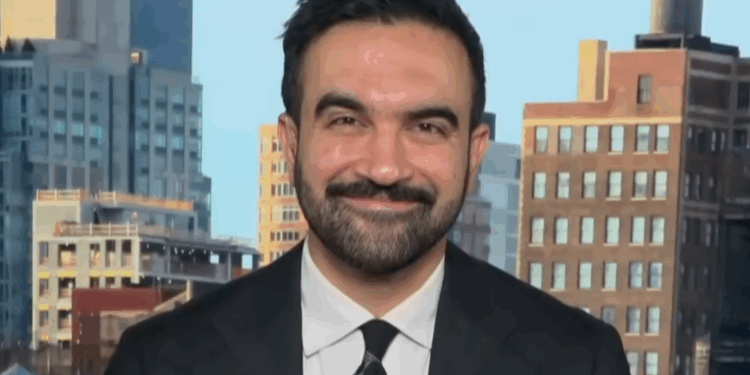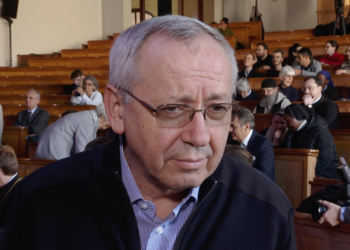Suicidal tendencies used to have a bad reputation. Perhaps the growing normalization of euthanasia in socialist economies — especially in parts of Central Europe where governments have found a creative way to ease public debt by encouraging people to end their own lives and thus save on pensions — is changing that. Maybe this is the only way socialism can “work,” macabre as its fiscal policy may be. In any case, there now seems to be a certain sympathy for suicide — an enthusiasm recently embraced by New York City when it voted for socialist Zohran Mamdani, who wears his nostalgia for communism like a badge of honor.
Free public transportation sounds like a happy idea. But to borrow from P. J. O’Rourke: if you think public transportation is expensive now, just wait until it’s free. Raising taxes on the rich is another one of Mamdani’s “fresh” ideas. Truly brilliant. I’m sure no one has ever thought of that before.
As for inclusive immigration policies, one only needs to look at Europe to see what a roaring success they’ve been — a true guarantee of prosperity, peace, and security for every nation involved. Somehow, I suspect Mamdani is the kind of politician who believes his personal experiences apply universally. You know the type: the politician who freezes rents because he once struggled to find an apartment, the one who bans alcohol in public because someone once threw a beer at him, or the one who was born male but feels like a woman and insists that everyone else must have the government pay for his castration.
His ideas about “local community participation” strike me as almost touchingly naïve. Years ago, in my small hometown in Spain, a socialist mayor tried the same thing. He began holding what he called “neighborhood meetings,” spending hours each week chatting in city squares with the unemployed and retirees — the only ones available to talk with the mayor in the middle of a weekday morning. The result? Proposals such as: “Someone should clean the penis-shaped graffiti on my garage door,” “Mayor, why don’t we tax people who walk too fast on the sidewalk?”, “It’s intolerable that this neighborhood doesn’t have a water park for cats,” or “My upstairs neighbor snores too loudly, and when I call the local police, they never come to arrest him!”
After the great economic crisis of the early 2000s, roughly 15 years ago, small communist groups — probably financed by the usual suspects somewhere between Latin America and the ayatollahs — stirred up a so-called “citizens’ movement” across the West. In Europe, it became the “indignados” movement; in the United States, the unforgettable Occupy Wall Street spectacle. The European version took shape as semi-permanent activist camps (essentially 1960s-style hippie communes) in city squares across the continent.
I had the opportunity to visit the Madrid camp, known as 15-M, in the central Puerta del Sol. Naturally, I went wearing a hazmat suit. After two weeks, the level of filth in the square was indescribable — hundreds of hippies claiming to fight capitalism while their real war was clearly against soap.
In theory, these protests were anonymous and leaderless. In practice, they were meticulously directed. Inside their tents, participants held endless assemblies to make “collective decisions” and draft “anti-capitalist” proposals. At the time, I sent a reporter from my newspaper to infiltrate one of those meetings. I still remember his call afterward. Everyone was allowed to speak and vote — by waving their hands in the air, for some reason — but the most memorable aspect of the event was the dense cloud of marijuana smoke hovering above the tent, which left my correspondent half-delirious and bursting into random laughter.
My point is: We’ve seen all this before, and we know how it ends. We’ve already met politicians like Zohran Mamdani — the demagogues whose proposals are impossible to implement, or worse, will simply bankrupt New York. We know exactly what happens when you raise taxes, hand out free public services to those who don’t need them, encourage mass Muslim immigration, and spend all day preaching about “citizen participation” and “community engagement.”
Zohran Mamdani is a communist who lacks the courage to admit it. And the Democratic Party has become Mamdani. Let’s leave them to it. You know what they say: Never interrupt your enemy when he’s making a mistake.
READ MORE:
Electing the Image: Mamdani and the Mimetic Turn in Democracy








![Florida Man Arrested, Said He Had a 'Dirty Bomb' in His Truck [WATCH]](https://www.right2024.com/wp-content/uploads/2025/12/Florida-Man-Arrested-Said-He-Had-a-Dirty-Bomb-in-350x250.jpg)

![Florida Officer Shot Twice in the Face During Service Call; Suspect Killed [WATCH]](https://www.right2024.com/wp-content/uploads/2025/12/Inmate-Escapes-Atlanta-Hospital-After-Suicide-Attempt-Steals-SUV-Handgun-350x250.jpg)






